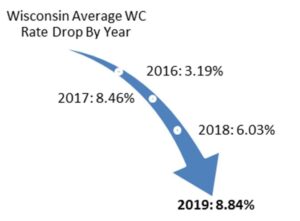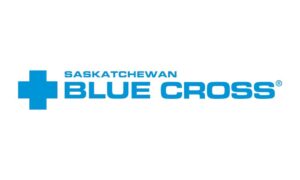Failure to Plead an Identifiable Theory of Liability Requires Dismissal

Post 4916
See the full video at https://rumble.com/v5jol0r-failure-to-plead-an-identifiable-theory-of-liability-requires-dismissal.html and at https://youtu.be/_rHZryoe8fA
Raymond Kvalvog challenged the dismissal of his claims against his insurer, Secura Supreme Insurance Company. Kvalvog argued that his complaint states a claim upon which relief can be granted because it alleges Secura (1) breached its duty of good faith by failing to inform Kvalvog of his right to withdraw from the liability coverage he invoked and take over his defense, (2) breached its duty of good faith by failing to properly evaluate the claims against Kvalvog, and (3) failed to pay Kvalvog $17,500 in uninsured-motorist benefits.
In Raymond Kvalvog v. Secura Supreme Insurance Company, No. A24-0226, Court of Appeals of Minnesota (October 14, 2024) the Court of Appeals resolved the allegations.
FACTS
After a tragic automobile accident where Kvalvog’s son was driving an automobile as part of a high school athletic trip. The passengers in the automobile included Kvalvog’s other son and Mark Schwandt. As a result of the accident, Kvalvog’s sons died and Schwandt was injured. At the time of the accident, Secura provided automobile insurance coverage to Kvalvog that included liability coverage.
Kvalvog brought a wrongful-death action against, among others, the school and a coach who was driving a different vehicle as part of the school trip only to lose.
Schwandt later commenced a separate action against Kvalvog, the school, the coach, and Schwandt’s own insurer (the underlying action), asserting in part that Kvalvog was liable for Schwandt’s substantial injuries. Kvalvog tendered the defense of the underlying action to Secura, which appointed a lawyer to defend Kvalvog. The case settled with Secura paying less than the policy limits in exchange for a release of all claims against Kvalvog.
The district court granted Secura’s motion reasoning that Secura had the right to settle the claims against Kvalvog, did so within his policy limits.
Kvalvog asserts that his complaint supports three theories of liability, the first two of which are premised on Secura’s claimed breach of its duty of good faith.
The district court granted Secura’s motion to dismiss, determining that Secura did not breach their duty of good faith by settling the claims at mediation within policy limits and that the complaint did not state a viable claim for $17,500 in uninsured-motorist benefits.
DECISION
A complaint is subject to dismissal if it fails to state a claim upon which relief can be granted. Kvalvog’s complaint fails to state a legally sufficient claim that Secura breached its duty of good faith.
An insurance policy, like other contracts, is governed by its terms. But Minnesota law imposes an additional duty of good faith on a liability insurer that assumes control of the right of settlement of claims against its insured. This duty arises because an insured and insurer may have conflicting interests, with an insurer being obligated to represent an insured’s best interests and to defend and indemnify while also wanting settlement at the lowest possible figure. An insurer’s right to control the negotiations for settlement must be subordinated to the purpose of the insurance contract-to defend and indemnify the insured within the limits of the insurance contract
Secura Did Not Have A Duty To Inform Kvalvog That He Could Withdraw From The Coverage He Invoked.
A liability insurer’s duty of good faith springs from the purpose of the insurance contract-to defend and indemnify the insured within the limits of the insurance contract. If an insured is clearly liable the insurer must attempt to settle with the injured party. A liability insurer’s obligations are tethered to a purpose: protecting an insured’s financial interests and ensuring that the insured receives the full benefits it is entitled to under the policy.
Creating the duty advanced by Kvalvog would do the opposite. Such a duty would run counter to an insurer’s other rights and obligations.
Secura Is Not Liable For Any Failure To Investigate.
Kvalvog has not stated a claim for a breach of the duty of good faith on which relief can be granted. Kvalvog’s theories of liability, failing to advise him that he could fire the appointed lawyer, are not viable under Minnesota law.
Kvalvog’s Complaint Fails To State A Legally Sufficient Claim For Uninsuredmotorist Benefits.
Without an identified liability theory, the complaint does not provide fair notice of the basis for Kvalvog’s uninsured motorist claim. It was appropriately dismissed.
Liability insurance provides for a defense of the insured. It does not, nor should it, provide for the insured’s attempt to gain a judgment against a third party or UM coverage when the responsible party is insured. No good deed was punished – Secura settled the claim against Kvalvog only to be sued for doing what the policy required it to do.
 (c) 2024 Barry Zalma & ClaimSchool, Inc.
(c) 2024 Barry Zalma & ClaimSchool, Inc.
Please tell your friends and colleagues about this blog and the videos and let them subscribe to the blog and the videos.
Subscribe to my substack at https://barryzalma.substack.com/subscribe
Go to X @bzalma; Go to Newsbreak.com https://www.newsbreak.com/@c/1653419?s=01; Go to Barry Zalma videos at Rumble.com at https://rumble.com/account/content?type=all; Go to Barry Zalma on YouTube- https://www.youtube.com/channel/UCysiZklEtxZsSF9DfC0Expg
Go to the Insurance Claims Library – https://lnkd.in/gwEYk
Like this:
Loading…
Related
About Barry Zalma
An insurance coverage and claims handling author, consultant and expert witness with more than 48 years of practical and court room experience.




